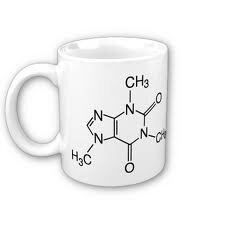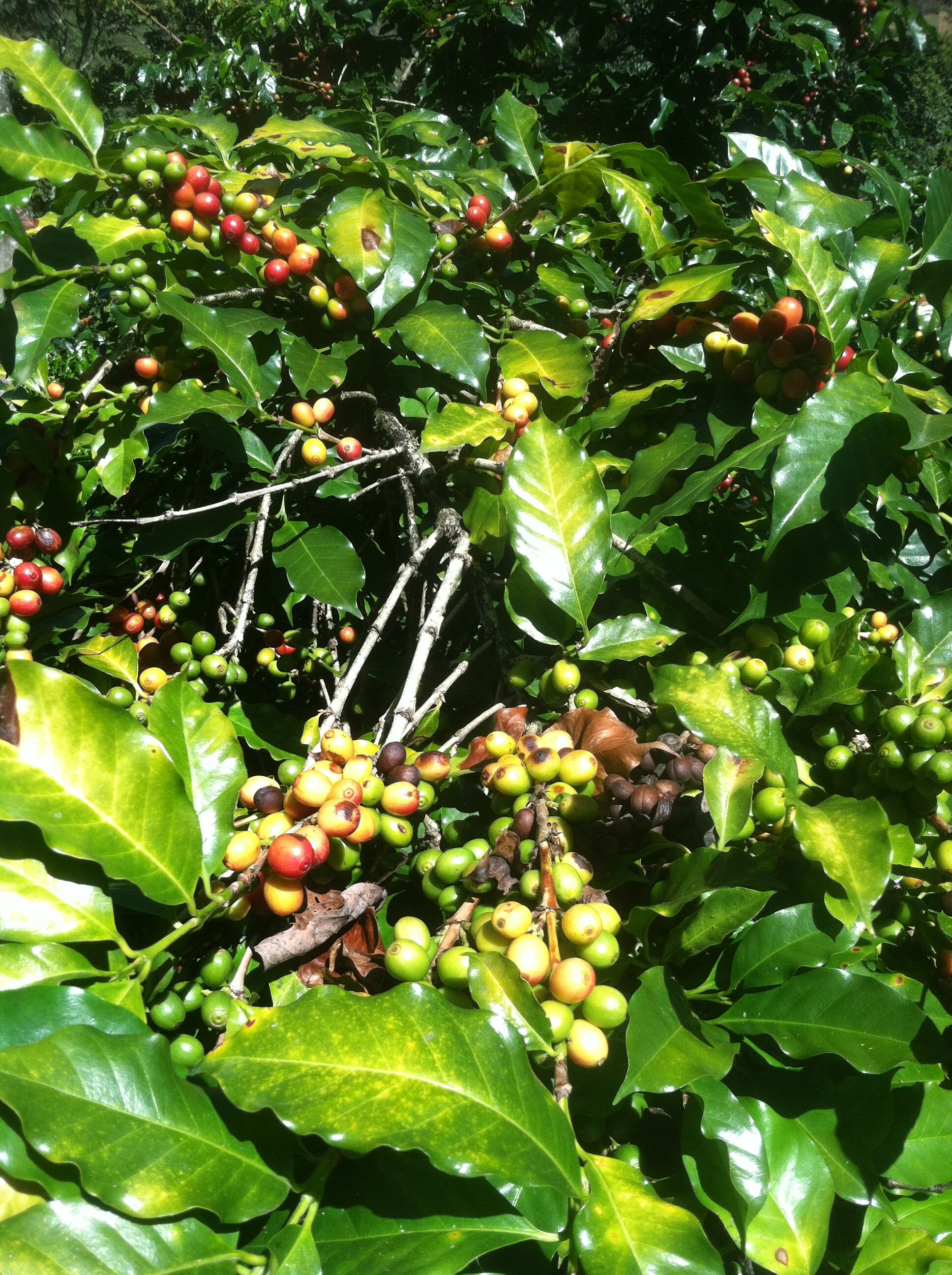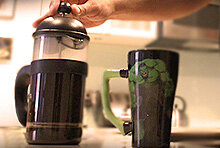How much caffeine is in a tablespoon of ground coffee?
Question:"I've been wondering how much caffeine is in a tablespoon of ground coffee (the actual grounds) but I can't seem to find it on Google. Please help if you can." - JohnAnswer: Excellent question, John!I have a hard time answering coffee questions without geeking out, so this is sure to be longer than what you anticipated as an answer :).Let's get the chemistry out of the way. Caffeine, as well as another alkaloid named trigonelline, account for 1% of the weight of green, unroasted coffee. As an aside, did you know that the coffee plant produces caffeine as a defense against insects?Green, unroasted coffee is dense and heavy with moisture, which is expelled from the coffee bean as it's roasted. The amount of weight that the coffee bean loses as it's being roasted varies, but let's go with 15% of its weight as a good round number.
Excellent question, John!I have a hard time answering coffee questions without geeking out, so this is sure to be longer than what you anticipated as an answer :).Let's get the chemistry out of the way. Caffeine, as well as another alkaloid named trigonelline, account for 1% of the weight of green, unroasted coffee. As an aside, did you know that the coffee plant produces caffeine as a defense against insects?Green, unroasted coffee is dense and heavy with moisture, which is expelled from the coffee bean as it's roasted. The amount of weight that the coffee bean loses as it's being roasted varies, but let's go with 15% of its weight as a good round number. This is where the debate starts about whether or not different-roasted coffees contain different amounts of caffeine. Many years ago, it was my understanding that dark-roasted coffees contained more caffeine. I wasn't alone, as I recall many people at the time equating a "strong coffee" with being dark-roasted. Further on, I started hearing that the roasting process itself burns off trace amounts of caffeine, which would mean that the darker the roast, the LOWER the caffeine.But wait, there are a couple other ways to look at it! I've been told even more recently that the roaster never reaches a high enough temperature to burn caffeine, therefore caffeine content is THE SAME between a medium-roasted and dark-roasted coffee. To make matters worse, if the previous statement is true and coffee loses more weight the darker it's roasted, then we're back to the understanding that a dark-roasted coffee loses more weight but keeps the same amount of caffeine. That would mean it indeed has HIGHER caffeine, all other things being equal.
This is where the debate starts about whether or not different-roasted coffees contain different amounts of caffeine. Many years ago, it was my understanding that dark-roasted coffees contained more caffeine. I wasn't alone, as I recall many people at the time equating a "strong coffee" with being dark-roasted. Further on, I started hearing that the roasting process itself burns off trace amounts of caffeine, which would mean that the darker the roast, the LOWER the caffeine.But wait, there are a couple other ways to look at it! I've been told even more recently that the roaster never reaches a high enough temperature to burn caffeine, therefore caffeine content is THE SAME between a medium-roasted and dark-roasted coffee. To make matters worse, if the previous statement is true and coffee loses more weight the darker it's roasted, then we're back to the understanding that a dark-roasted coffee loses more weight but keeps the same amount of caffeine. That would mean it indeed has HIGHER caffeine, all other things being equal. Sorry for the tangent. Let's just assume that 15% of the coffee's weight in moisture is expelled in the roasting process, and that the caffeine content stays constant. That would mean that caffeine would go from 1% of the coffee's composition to about 1.2%.According to convertunits.com, one tablespoon equals 15 grams. 1.2% of 15 grams is 180 mg.I invite people to double-check my math, and I am always more than happy to admit when I am wrong. I checked myself by looking online, and found it universally accepted that one metric cup of coffee contains around 95 mg of caffeine - ironic that number is exactly half of what I came up with above.
Sorry for the tangent. Let's just assume that 15% of the coffee's weight in moisture is expelled in the roasting process, and that the caffeine content stays constant. That would mean that caffeine would go from 1% of the coffee's composition to about 1.2%.According to convertunits.com, one tablespoon equals 15 grams. 1.2% of 15 grams is 180 mg.I invite people to double-check my math, and I am always more than happy to admit when I am wrong. I checked myself by looking online, and found it universally accepted that one metric cup of coffee contains around 95 mg of caffeine - ironic that number is exactly half of what I came up with above.
